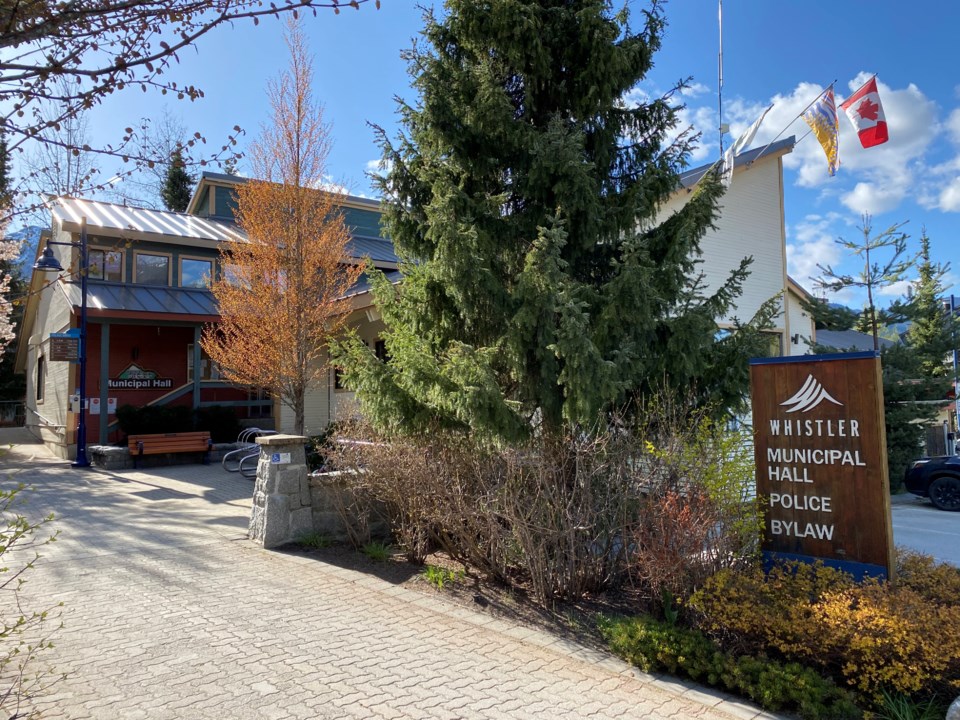Citing unsustainable workloads that were only worsened by the COVID-19 pandemic—and the added strain of a ransomware attack that handcuffed municipal services in late April—the Resort Municipality of Whistler (RMOW) is seeking to bolster its employee base by way of a budget amendment.
Introduced and given first three readings at the Aug. 17 meeting, the bylaw will allocate $112,000 in fiscal ’21 and another $560,000 in 2022 from the general reserves to add 11 new positions to the RMOW’s payroll (though not all permanent full-time).
The new additions include: a project manager for parks and trails construction; a building official; three computer systems analysts (one short-term, and another transitioning a part time role into a full-time role); an accountant; a capital projects coordinator (making an existing term role permanent); two records clerks (both short term); a bylaw enforcement officer; a risk and insurance coordinator; and a computer systems tech (making a term role permanent).
According to a staff report to council, the additions were deemed necessary after a November 2020 leadership retreat with staff and council in which some clear themes emerged: capacity challenges, burnout, and too much work with not enough time to do it.
A subsequent review of the challenges revealed “an organization that entered 2020 struggling to keep pace with its core services and expanding list of responsibilities with a workforce that has only marginally changed in size from 2014 levels,” the report from director of finance Carlee Price read.
The pandemic and subsequent ransomware attack only added more urgency to the situation, the report said, leaving current RMOW workloads unsustainable and staff resiliency low.
“Pandemic recovery will continue to put operational and political pressure on the RMOW. Conflict and stress with the community and local industry has risen as the dislocation widens between community service-level expectations and what is possible to achieve with existing staff resources,” the report read.
“Maintaining a high-quality Whistler product and level of customer service remains paramount and must be achieved regardless of outside challenges.”
While senior staff did consider scaling operations back rather than simply getting bigger, “these staff additions have to do with managing existing workload that needs to get done, so it’s not a matter of just taking something off the plate,” said chief administrative officer Virginia Cullen the morning after the meeting.
“These are urgent items that need to be completed, but it’s also planning for a couple of retirements … [so] there’s some succession planning in there as well.”
Not being able to adequately service the community is “a huge concern for me,” she added.
“[The additions] will be a welcome piece of support for staff,” she said, adding that another main concern is staff retainment.
“If you are understaffed for your workload, you end up with people leaving because they burnout, so I think this will help for sure in building in that resilience that has been depleted through the pandemic as well as through the cyber attack.”
The RMOW reversed course on a planned 4.89-per-cent tax increase this year, utilizing municipal reserves to bring the increase down to 1.08-per-cent.
The move is expected to lead to larger tax increases in future years, though the full implications are still unkown.
Next year’s tax increases won’t be revealed until the budget open house in November.
The amendment also shifts spending from general reserves for two other initiatives: renovations at municipal hall ($130,000); and replacement of underground fuel tanks and the vehicle fuelling system at the public works yard ($255,000).
Further, the amendment will make space in the budget for a $446,000 grant from the Union of BC Municipalities focused on Indigenous outreach, peer support and providing temporary emergency shelter.




